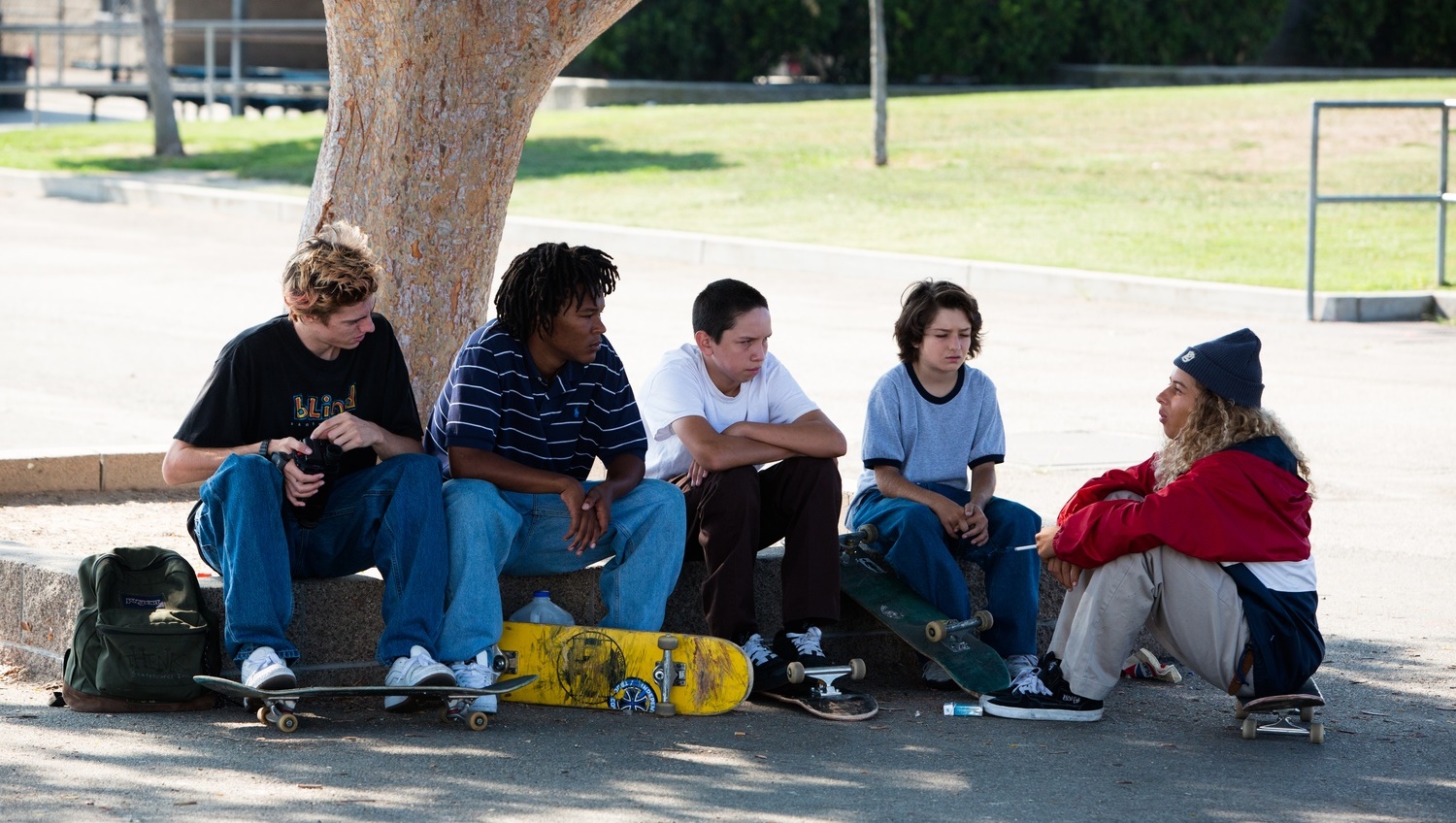
Mid 90’s
Dustin Chase
Jonah Hill is now a filmmaker. The Oscar-nominated actor (The Wolf of Wall Street) has joined the slew of young actors sliding into the director’s chair. The vile, immature antics we’ve come to expect from Hill on screen (Superbad, 21 Jump Street) are still here in this skateboarding nostalgia trip appropriately titled Mid 90’s. It doesn’t take long to spot which character in the story Hill imagines himself to be (hint: it’s the guy with the camera). Lucky for us, this story isn’t about that guy. Hill’s success here is capturing what it feels like for an outsider to find somewhere to belong, the film’s main achievement.
Bullied at home by his older brother (Lucas Hedges), 11-year-old Stevie (Sunny Suljic) has no friends or hobbies beyond video games and TV. Their single mother (Katherine Waterston) is more occupied with work and men than parenting. She only steps into her mother-role occasionally when the sons steal some money or get in a fight at school. Stevie trades some of his favorite video games for brother Ian’s outdated skateboard, which gains him entry into a local group of skaters. At first, he is the annoying little kid, tagging along with these teen skate punks who drink, smoke, and brag about their exploits with women. It’s only after a heart-stopping fall from a rooftop and a mild concussion that the rowdy gang welcomes their new little daredevil into the group. What could have been a tragic fall ultimately becomes a pivotal moment in his young life.
Hill’s success here is capturing what it feels like for an outsider to find somewhere to belong; the films main achievement.
Coming-of-age plots are the most likely start for first-time filmmakers. I worried Hill’s cold personality in real life would bleed into his work here, but he manages to write a few characters that have decent depth. Unfortunately, 2018-star-of-the-moment Lucas Hedges (Boy Erased, Ben is Back) is completely underutilized, as is Waterston (Fantastic Beasts). Their names on the marquee are of more value than their performances. An ageless tale, this story could exist in any decade. The 90’s era doesn’t affect the plot that much beyond the Teenage Ninja Turtle bed sheets and Super Nintendo consoles. Hill shoots the film in 16mm, full screen (4:3), another throwback to movies during that time period. “Let’s have a Blockbuster night,” Mom says in one scene, harking back to America’s once-favorite Friday night pastime.
The vulgarity often steals the focus from what’s being said in the movie, and I am not talking about profane language. There is an entire conversation among the guys about raping their parents, followed later by a very uncomfortable scene where the lead character has his first sexual experience. Underage drinking, ultimately leading to a car crash, is presented as an inconsequential occurrence here. Evidently, Hill has no interest in delivering a movie with a life lesson. Mid 90’s strips away normal character development. Instead, Hill builds characters using a string of simplified dialogues. Inspired by other 90’s flicks in the wheelhouse of Larry Clark, Mid 90s showcases a preteen’s first experience with real friendship and a montage of their experiences together, which, in the end, feels more like a timestamp than a conversation piece.
Final Thought
Hill’s first feature feels like an extended music video experiment that works about as often as it doesn’t.
